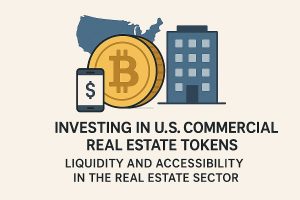In recent years, the concept of sustainable investments has captured the attention of investors across the United States. Data from recent market reports highlight a significant increase in demand for ESG (Environmental, Social, and Governance) investments, illustrating an evolving investment landscape. This trend underscores the importance of sustainable investing for both investors keen on ethical returns and companies striving to align with contemporary values.
The rise of sustainable investments marks a pivotal shift in investment paradigms, prioritized by an increasing number of individuals and organizations. As concerns over climate change intensify, the ESG investment sector provides an avenue for aligning financial goals with ethical considerations. Institutional investors and corporations are making strides in integrating sustainability into their core strategies, recognizing the broader significance that these investments could have on future growth.
What is driving the shift toward sustainable investing?

The shift towards sustainable investing is driven by a fundamental change in investor mindset, particularly among Americans. Traditionally fixated on maximizing profit, investors are now increasingly attentive to the social and environmental impacts of their portfolios. This evolution reflects a broader societal shift, as consumers and investors alike demand greater corporate accountability and transparency in sustainable practices.
Moreover, younger generations, notably Millennials and Gen Z, have been key catalysts in this transition. Known for their strong advocacy for social and environmental causes, these generations have influenced the investment landscape significantly. Their preference for ESG investments is shaping not only market trends but also corporate behavior, urging businesses toward more sustainable practices.
The rising pressure from these demographic shifts and regulatory changes underscores the importance of sustainability in modern investing. These factors together highlight why the market is increasingly leaning towards ESG initiatives.
How the American investor profile is changing
The profile of the American investor is undergoing substantial transformation as sustainability takes center stage. In contrast to traditional investors who prioritized returns above all else, today’s investors are factoring sustainability into their investment decisions. This shift is evident in the growing popularity of ESG funds, which offer exposure to companies committed to sustainable principles and practices.
This evolving investor demographic is also showing increased enthusiasm for startups and companies focused on social impact. Investors are recognizing the potential of companies that innovate within the ESG landscape, and they are diversifying their portfolios to include these opportunities. By aligning financial gains with ethical progress, modern investors are advocating for a more responsible approach to wealth creation.
Key sectors benefiting from sustainable investments
Sustainable investments are favoring a number of sectors, particularly renewable energy and clean technologies. As the world continues to shift away from fossil fuels, investments in solar, wind, and other renewable energies are experiencing significant growth, driven by both investor interest and legislative incentives. Agriculture is another sector benefiting from this investment wave, as sustainable farming practices and alternative food production gain momentum in response to climate change challenges.
Similarly, technology and innovation in ESG are playing vital roles. Blockchain technology is being leveraged for enhanced traceability in supply chains, and sustainable fintech solutions are offering new ways to invest responsibly. These advancements not only enhance efficiency and transparency but also facilitate responsible investing. Together, these sectors illustrate the diverse opportunities arising from the growing attention to sustainability, driving innovation and offering investors a chance to make an impact.
Challenges and criticisms of ESG investing
Despite its growing popularity, ESG investing faces several challenges and criticisms. One major concern is greenwashing, where companies market themselves as sustainable without substantial commitments or achievements in environmental or social areas. This practice can mislead investors and undermine genuine efforts toward sustainability. The lack of standardized regulation for ESG contributes to this issue, as the United States currently lacks a universal framework for evaluating and certifying ESG credentials.
Another debate surrounding ESG investments is the balance between financial returns and social/environmental impact. Some skeptics argue that sustainable investments yield lower financial returns, although evidence increasingly suggests that companies with solid ESG practices can outperform traditional investments in the long term. The dichotomy between profit and impact continues to be a topic of extensive discussion in the industry and among investors.
Future of sustainable investments in the US
The future of sustainable investments in the United States seems poised for remarkable growth. Anticipated legislative advancements and evolving market dynamics suggest that ESG investing will continue to expand, offering fresh opportunities and challenges for investors. As new regulations and standards for ESG are developed, investors will need to stay informed to maximize their impact and returns effectively.
Investors can prepare by fostering a deeper understanding of ESG metrics and impacts, ensuring a balance between ethical considerations and financial performance. In doing so, they can make more informed decisions that align with long-term value creation. The proliferation of sustainable investment strategies in the US is not just reshaping portfolios, but also redefining investment philosophies across America.



